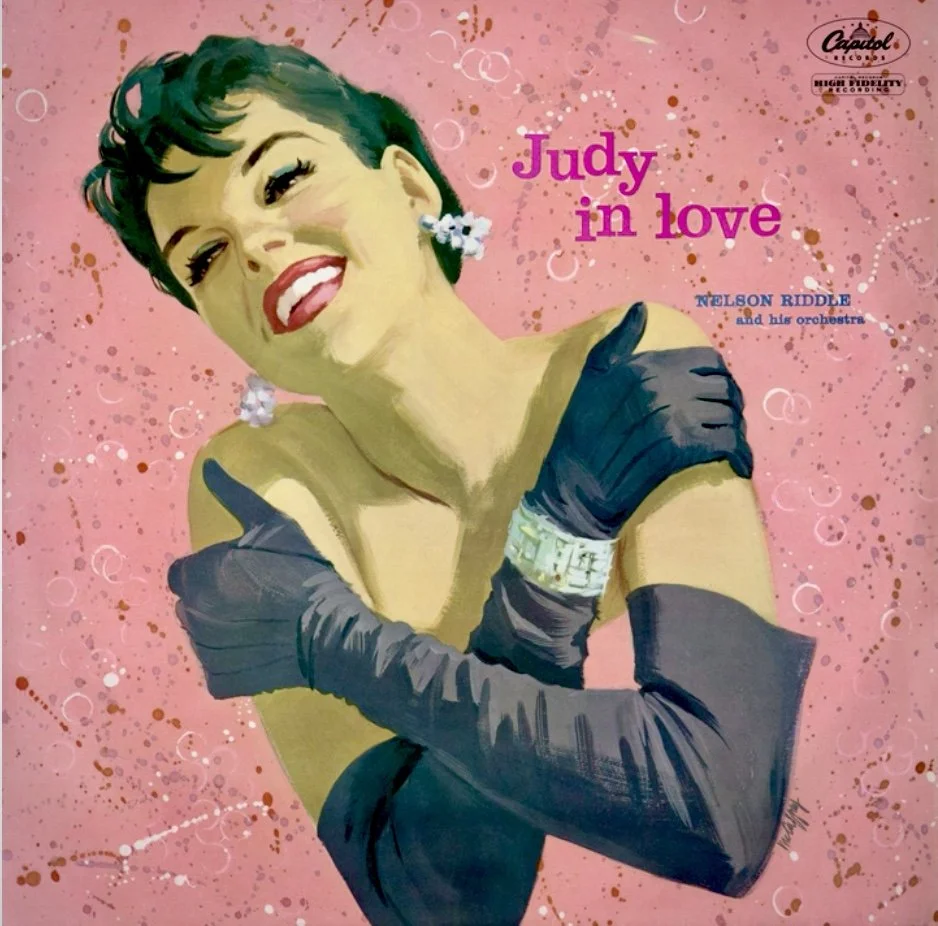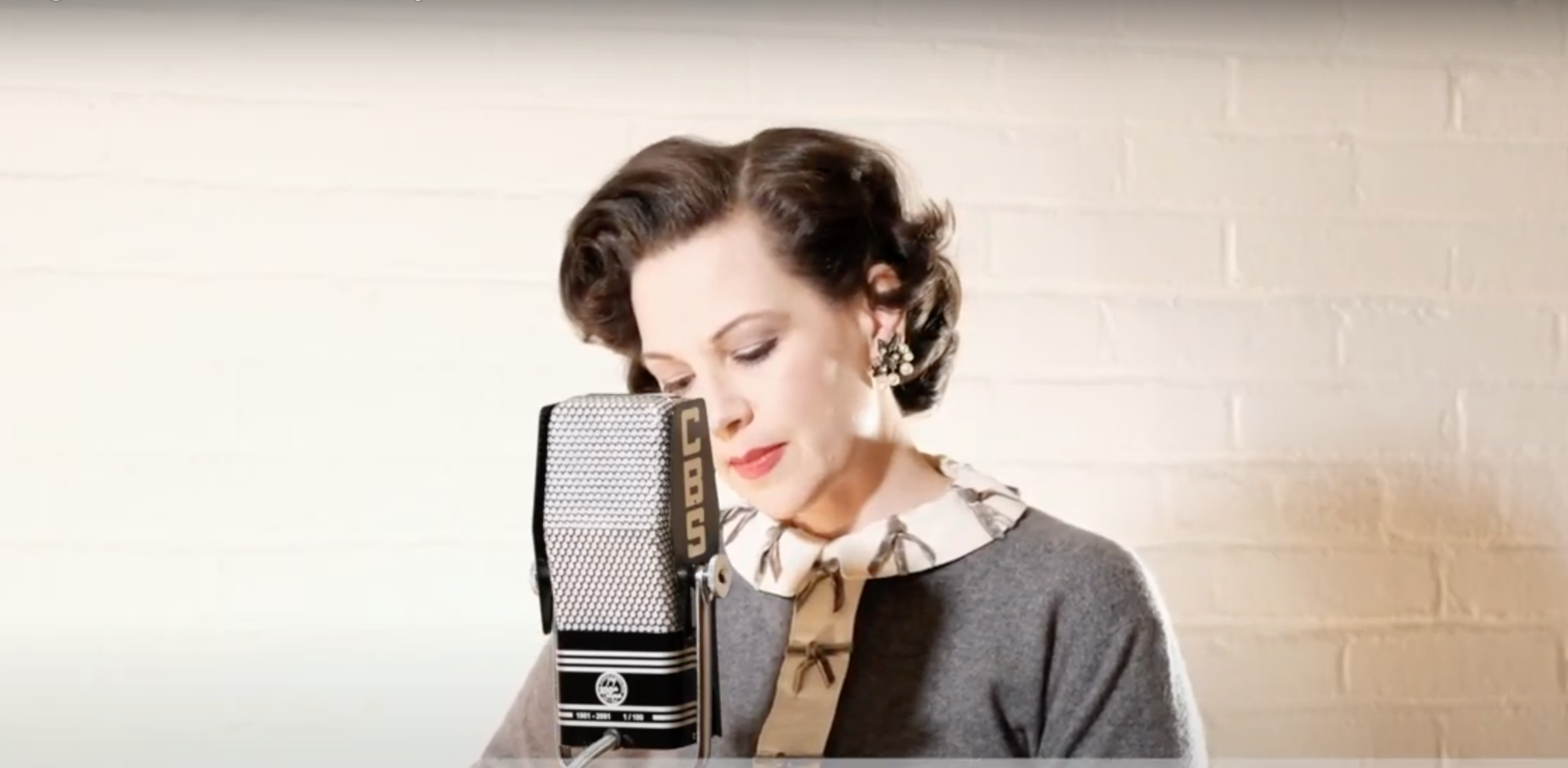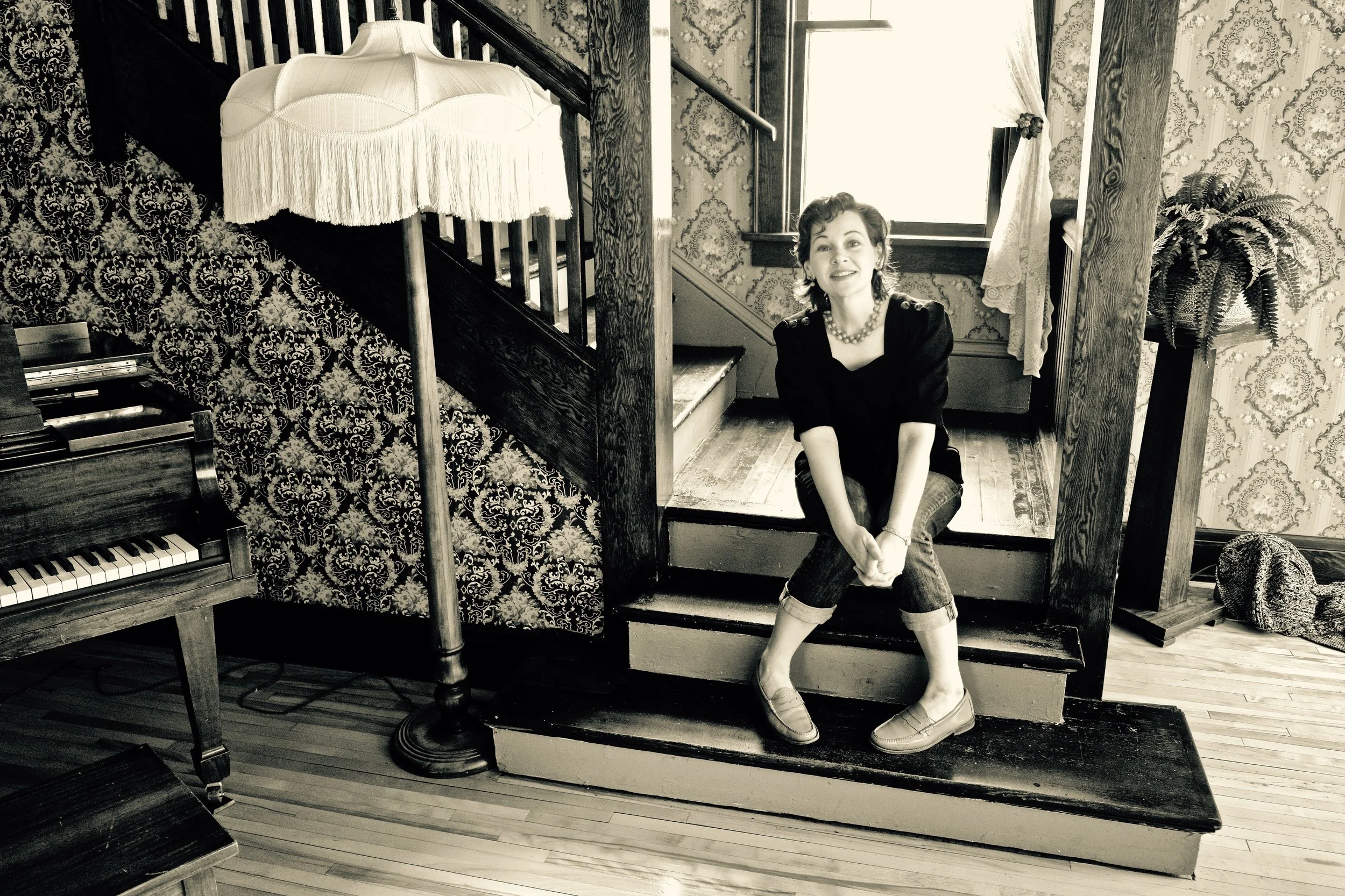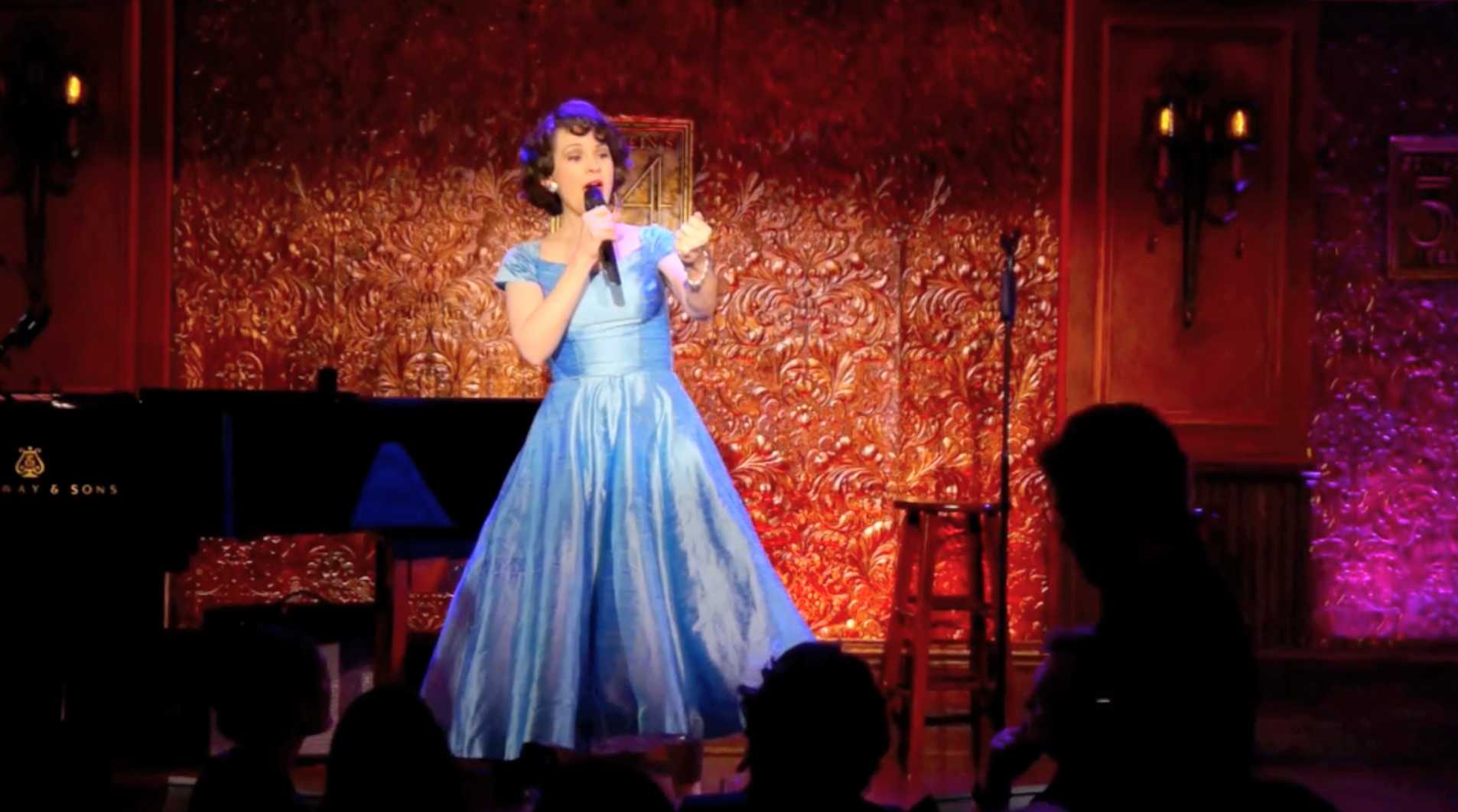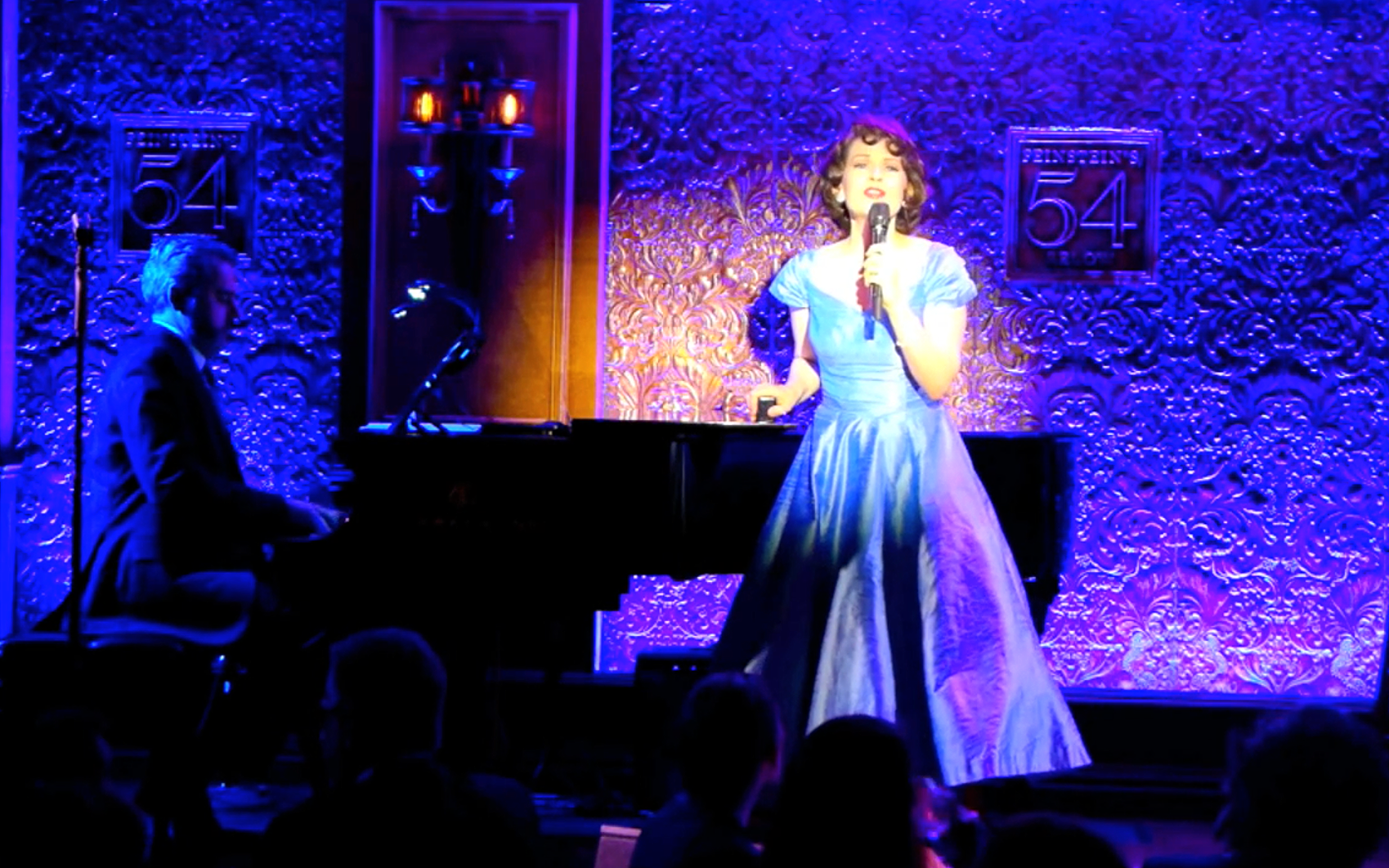It kind of feels like every day is Judy Garland’s centennial in our house, since, on any given day, chances are I’m either knee-deep in restoring one of her original orchestral arrangements or practicing to sing a whole bunch of them with an orchestra. But a little extra celebration is definitely in order this year, so after you’ve baked a cake, finished watching all her movies, and listened to the Carnegie Hall album, here are three recordings that are far enough off-the-beaten-path that even some long-time Garland fans may not have come across them. All of them are personal favorites, and I hope you enjoy them, too!
Read MoreAlthough written for Judy Garland to sing in the 1944 film Meet Me in St. Louis, “Have Yourself a Merry Little Christmas” seems like it could have been written today. Back then, America was knee-deep in World War II, and now we’re nine months into another world-wide crisis, in many cases without even the comfort of friends and family to help us get through it. Here’s hoping that “someday soon we all will be together” and that 2021 will be much brighter than 2020. And in the meantime, Merry Christmas.
(Song by Hugh Martin & Ralph Blane; Original orchestral arrangement by Conrad Salinger; Piano arrangement by Joan Ellison based on the original orchestration.)
Read More81 years ago tomorrow, on October 7th, 1938, Judy Garland and the MGM studio orchestra recorded “Over the Rainbow.” The song was written for the film by Harold Arlen and E.Y. Harburg, and arranged by Murray Cutter. It was in the MGM scoring stage with its plywood walls, with Judy singing at the same time as the orchestra and Georgie Stoll conducting. They did eight takes that day, splicing together the beginning of take 5 with the rest of take 6 to be used in the film, and the rest is history.
Yes, it’s nice that it’s the 81st anniversary (and the 80th anniversary of the release of the film this autumn, too), but why bother to write this post? Well, because for a few weeks this summer, this particular arrangement of “Over the Rainbow,” which has loomed large in my life since I first heard it at age two, became a near-obsession. It all began on May 8th of this year, when in the middle of an email about another Garland arrangement I was restoring for an upcoming concert (more on that here), Michael Feinstein dropped the tantalizing tidbit that he might have found the original orchestral arrangement of “Over the Rainbow.” He couldn’t be sure until he received actual copies because he’d only gotten a brief glimpse of them among composer/bandleader/arranger David Rose’s files as he was helping David’s daughter, Angela Rose White, move some files from her Studio City office.
And then we waited…
….and waited….
….and waited.
Read MorePardon me for not writing in over a year. At the same time that we bought a new house, moved, then sold our old house, I was having to finish up the biggest project of my life at least 6 months earlier than I’d even dreamed was possible. To quote one of Judy Garland’s early songs from Love Finds Andy Hardy, “It Never Rains, But What It Pours!”
But, as in all my favorite MGM movies, there were some silver linings. I absolutely love my “new” 1941 house and friendly neighborhood right out of an Andy Hardy movie. And the aforementioned project — restoring the orchestral arrangements for Judy’s 1961 Carnegie Hall concert — culminated in one of the high points of my my life thus far.
Read MoreI often wondered about people who did one-person shows — specifically, what kind of person would want to hold a 7500-word script in her head. Well, in the last year, I’ve become that person. And I’m still not much closer to understanding why someone would voluntarily do what amounts to a high-wire act without a net. Except that when it works it is really, really fun.
Read MoreIt’s been a few months since I’ve written, but I just had to come up for air to share some exciting news with you: Michael Feinstein has invited me to join the Judy Garland Carnegie Hall Concert Restoration Project team as Editor, for The Judy Garland Heirs Trust. As part of this project to preserve Judy Garland’s musical legacy, our aim is to restore all of the original symphonic arrangements from the 1961 Carnegie Hall Concert and make them available for live performance once again. Since late last summer I have been restoring and performing a handful of Judy’s original arrangements that the Trust, of which Michael Feinstein is a trustee, very graciously shared with me. But to get the chance to work on a preservation project like this is so exciting that I still have to stop and pinch myself. (And then I look at the long road ahead and it sobers me up in a hurry, but I digress…)
Read More“And all around me I hear voices that I can’t ignore,
The voices of the stars who played the Palace long before.
The stars who entertained you until the rafters rang —
You don’t need their names, for the whole world acclaims them
For the wonderful songs they sang…”
~Roger Edens, introduction to the "Judy at the Palace Medley"
As someone who spends a lot of her time listening to voices emerging from scratchy recordings and then trying to inhabit them, these lines were insistently reaching out to me every time I got to this point in Judy Garland's recording of her "Judy at the Palace Medley." It was some time back in the autumn of 2015, and I was trying to decide which tune to add next to my Garland repertoire — either to the second half of my Symphonic Pops concert or to my nascent cabaret show. I'd been “auditioning” a lot of numbers from her many post-1950 recordings, but this one was having the same dramatic effect on me every time I heard it...
…And I was resisting it tooth and nail.
Read MoreDuring the past five months I’ve been on a very steep learning curve — actually, more like something involving tornadoes and the yellow brick road — but on January 21st I’m going to get to share with 2000 people some of the results of the arduous journey: I’m going to get to sing two of Judy Garland’s original arrangements onstage with a symphony orchestra.
Of course, I’ve been singing Judy’s tunes with orchestras for a few years now, in wonderful arrangements based on the originals by two terrific arrangers (see an earlier post, "Getting Happy"). But for someone like me who loves time travel and Judy, suddenly having access to the actual note-for-note arrangements that we’ve all heard on her albums was an incredible stroke of good fortune that I’d never even allowed myself to hope for.
Here’s how it happened:
Read MoreWhile I was performing in The Boy From Oz in Naples last winter, I got a call from the Bemus Bay Pops asking whether I would be interested in doing the Garland portion of a Frank Sinatra & Judy Garland symphonic pops concert. How very interesting, I thought, because although there are only a handful of recorded Frank and Judy duets, they had performed together regularly on wartime radio programs, then decades later on a 1962 television special along with Dean Martin — and for my money, they were the two finest pop singers of the 20th century. Moreover, they were close friends for nearly three decades — a friendship that also included two brief romantic affairs: in 1949 while Judy was still married to Vincente Minnelli, and in 1955, while she was briefly separated from Sid Luft and Frank’s marriage to Ava Gardner was on the skids.
But perhaps most interesting and not widely known, is that Judy and Frank were members of the original “Rat Pack,” a social group of fun-loving, hard-drinking night owls who would convene at the home of Humphrey Bogart and Lauren Bacall in the tony Holmby Hills area of Los Angeles.
Read MoreLast March, Mark and I were perched on the comfy bar chairs in the WCLV Ideastream studio waiting for our interview to promote the premiere of Get Happy! Judy Garland 1944-’54. Just before we went on-the-air, the host, Bill O’Connell, asked me whether Judy Garland’s singing technique was healthy. I replied, “Yes, but she wasn’t always healthy.” Then I had to add that her technique is very efficient, but also very athletic — so, essentially, “Don’t Try This At Home!” Just like you wouldn’t want to try to run a marathon without significant training and practice, you also wouldn’t want to try to sing the Carnegie Hall Concert at full tilt without thousands of hours of training and conditioning.
Read MoreOne of the things I love the most about getting to sing music of the MGM-era is that I get to wear clothes that suggest — and sometimes more than suggest — the era. I figure my upcoming NYC cabaret debut with a show about Judy Garland circa 1944-1954 calls for very specific costuming; however, I've learned the hard way that going vintage can end up with your mother asking you why you're wearing that schmatta. So, when we put together our first Garland theatrical radio show in 2009 (Love Finds Judy Garland), I took the plunge and ordered an actual vintage pattern, picked out the exact color of sky-blue silk chiffon that I'd seen in my mind's eye, and had it made to fit.
Read MoreI feel just like Judy in the above picture, except in my case, the stacks of dishes are musical arrangements. I returned home from performances in Naples three weeks ago with a dozen arrangements still to finish for my new cabaret show, Get Happy! Judy Garland 1944-’54, which gets its first airing on April 1st. So I just spent my entire spring break from the Cleveland Institute of Music chained to my piano and running on Aeropress coffee and bonbons. You know you’ve been working too hard when a visit to the BMV to renew your expired driver’s license seems like a holiday...
Read MoreI was in Naples, Florida for nearly a month but, to quote the character of Judy Garland in The Boy From Oz when Peter Allen comments that she must be rested after her 15-hour coma, "It wasn't a holiday!" Getting a musical up on its feet in nine rehearsals is no mean feat, so a good bit of my "off" time was spent practicing whatever choreography, blocking, or harmony parts I'd been assigned and continuing to explore my circa-1964 Judy characterization and approach to the songs in the show — which were challenging because Judy never actually sang them.
Read MoreIf you’ve tuned-in to this blog lately, you will know that I’m preparing to play the role of “Judy Garland,” circa 1964, in The Boy From Oz at TheatreZone in Naples, Florida. You’d have to ask director Mark Danni, but I believe the rights only recently became available in the U.S. again, so this will be among the first regional productions since the 2003 Broadway smash starring Hugh Jackman as Australian singer-songwriter Peter Allen.
Peter Allen, of course, became Judy’s opening act for a time in the mid-‘60s after they met in Hong Kong, and married her daughter, Liza Minelli. My role in this production is therefore very much a supporting one, as I will have passed over the rainbow before the end of Act I; Broadway veteran Larry Alexander will be doing the heavy lifting as Peter. Nonetheless, I’m finding the role preparation quite an absorbing challenge (see “Becoming Judy Garland”).
Read MoreThe first three reviews of “Retrophonic Gershwin” have been posted just in the last two weeks — a “’S wonderful” antidote to our bleak-midwinter blues. I am doubly grateful that the reviews were overwhelmingly positive, since we are hardly old hands at the whole recording process.
Here are a few of the highlights, with links to the full reviews:
“Though she’s no Miniver Cheevy, soprano Joan Ellison is fond of revisiting what many regard as the golden age of popular song. Her live show, “Gershwin on the Radio,” and her new CD, Retrophonic Gershwin, take her fans back to what she calls in her album notes “a more glamorous age than ours…”
Thus Retrophonic Gershwin draws on the content and vocal stylings preserved on vintage recordings, “everything from inspiration to note-for-note transcriptions,” but also enjoys the state-of-the-art studio amenities of Clonick Hall at Oberlin….
Ellison’s partners-in-time-travel are vocalist Mark Flanders and duo-pianists Jason Aquila and Jodie Ricci, who collectively channel the spirit and style of such Gershwin landmarks as “I Got Rhythm,” “A Foggy Day,” and “The Man I Love” in a twelve-track performance that’s on the short side in duration …but packs in a lot of fine singing and piano playing. The songs may be retro, but Ellison and Flanders make them sound fresh and new.”
— Daniel Hathaway, ClevelandClassical.com
Read MoreIt's six weeks until rehearsals begin for The Boy From Oz and nine weeks until our Love Finds Judy Garland performance, so at the Ellison-Flanders household it's All-Garland, All-the-Time. Other than some time out for cookie-baking, which I will only be able to taste very sparingly (because do you recall how thin Judy was in 1964?), that's going to be number one on the to-do list until we leave for Naples.
After an initial few readings of the Boy From Oz script and songs, I've deliberately held back from touching cracking them open again until I immersed myself in Judy's biographies, memoirs, recordings, interviews, and television shows from the period of the show: mid-1964, just after her Australian tour, until her death in 1969 at the age of 47. But now I'm beginning to get that familiar feeling of a character starting to take residence in my body, so I think it's going to be time to start letting her out this week, at least on a short leash. (This is likely to scare my husband.) Since there are only nine rehearsal days to put the show on its feet, lines and songs need to be memorized before our first rehearsal, research needs to be finished, and the basic physicalization and voice need to be habitual enough that it's not taking all of my attention any more.
Read More
